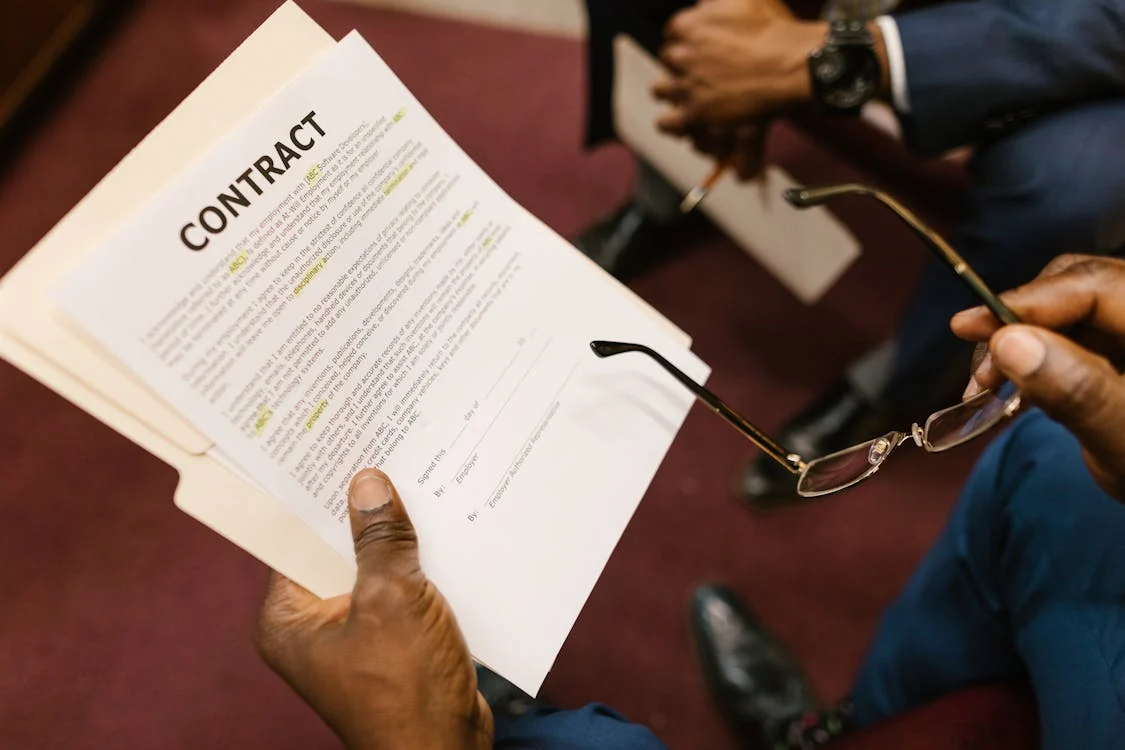Avoiding Pitfalls in Business Transactions: How to Protect Your Interests
Business transactions, whether large or small, are fundamental to the success of any enterprise. However, each transaction carries inherent risks, and without proper precautions, these risks can lead to financial loss, damaged business relationships, or even legal disputes.
This article discusses key strategies to help safeguard your interests in business transactions.
Understand Common Risks in Business Transactions
Every business transaction comes with its own set of risks. Being aware of these risks allows business owners to take the necessary precautions to avoid them. Some common risks are discussed below.
● Contractual Ambiguities: Vague or unclear terms in a contract can lead to disputes over obligations and expectations. It is essential to ensure that all terms are precise and mutually understood.
● Payment Delays or Defaults: Transactions often involve financial exchanges, and the risk of non-payment or delayed payment can impact cash flow and profitability.
● Regulatory Compliance: Each industry has its own set of regulatory requirements. Failing to comply with these requirements can result in penalties, fines, or reputational damage.
● Intellectual Property (IP) Risks: When dealing with proprietary information, there’s always the risk that intellectual property could be misused or improperly protected during a transaction.
Draft and Review Contracts Carefully
Contracts are a vital part of any business transaction. They outline the terms, expectations, and obligations of all parties involved. A well-drafted contract is critical for mitigating risks and avoiding ambiguities. Here’s how business contracts should be structured.
● Detail all terms explicitly: Ensure that pricing, payment schedules, deliverables, and timelines are clear.
● Address dispute resolution: Include clauses that specify how disputes will be handled, such as through mediation, arbitration, or litigation, and outline the jurisdiction in which disputes will be resolved.
● Include contingency plans: Address what happens if a party fails to meet its obligations or if external factors disrupt the agreement, such as unforeseen economic changes.
To ensure a contract protects your business, it is essential to have it thoroughly reviewed by a corporate lawyer who understands the guidelines of the transaction and industry.
The Role of Legal Counsel in Protecting Your Interests
Legal counsel plays a crucial role in safeguarding your interests during business transactions. A qualified business transaction lawyer can help in several key areas.
● Contract Negotiation and Drafting: Legal professionals are skilled in identifying potential issues that may not be apparent to non-experts. They can negotiate favorable terms on your behalf and draft contracts that reflect your best interests.
● Due Diligence: Business lawyers can perform thorough due diligence, ensuring that the other party is reputable and financially sound. They can also verify that the transaction complies with all applicable laws and regulations.
● Risk Mitigation: Corporate lawyers can identify potential legal risks and advise on how to mitigate them.
● Dispute Management: In the event of a dispute, having legal counsel on your side ensures that your interests are represented effectively. Business lawyers can assist in negotiating settlements, representing you in arbitration, or defending your position in court if necessary.

When navigating business transactions, it's crucial to have experienced corporate lawyers to avoid pitfalls in business transactions. At Alex Nahai Law, a top business law firm in LA, our business lawyers offer expert support in business transactions, dispute resolution, and contract negotiation. With over 10 years of experience, our corporate legal counsel in LA is equipped to protect your interests and guide you through every stage of the process.
Contact us for a consultation.











